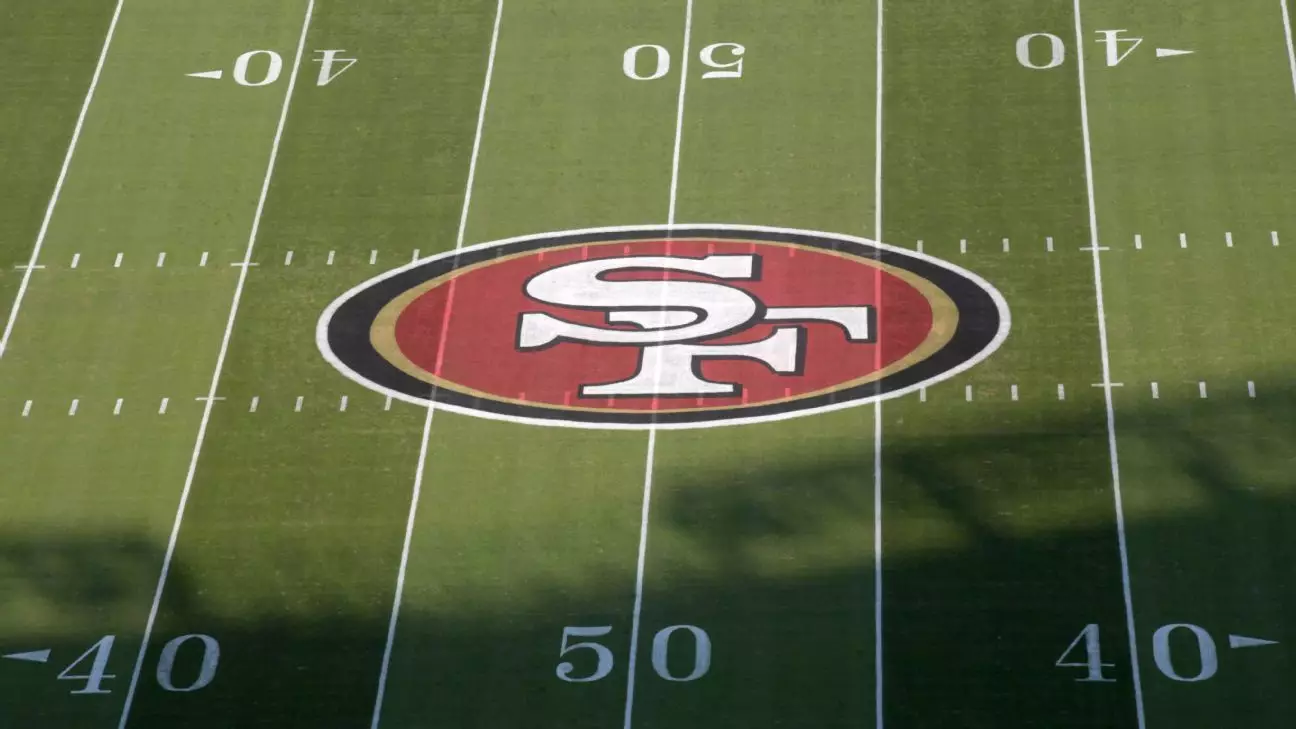The world of professional sports is as dynamic as the games themselves, characterized by transactions that can reshape the fabric of franchises. A particularly intriguing situation is unfolding with the San Francisco 49ers, a franchise steeped in history and rich with a passionate fanbase. Recently, owner Jed York revealed that his family has been inundated with offers from prospective investors wishing to acquire a stake in the team. This flood of interest highlights not just the financial allure of owning a piece of an NFL franchise, but also the transformative nature of such transactions within the sport.
The most eye-catching aspect of the current negotiations is the reported valuation of the franchise, which has exceeded a whopping $8.5 billion. This figure marks a significant landmark in the realm of sports franchises and indicates a robust interest in ownership stakes that can impact broader market dynamics. Why the sudden spike in valuation? Part of it might be linked to the enduring popularity of the NFL and the financial bonanza it represents—from media rights to merchandising. The sale of over 6% of the 49ers’ ownership stake demonstrates that the allure of NFL teams is not just limited to passionate fans but extends into the corridors of financial powerhouses.
Investor Profiles: Who’s Buying In?
The potential new stakeholders are not just random onlookers interested in a sports investment; they come armed with backgrounds steeped in venture capital and technology. The Khosla, Deeter, and Griffith families are often associated with innovation and cutting-edge industries. Vinod Khosla, a co-founder of Sun Microsystems, has a vast network and experience that could bring valuable insights into the franchise’s growth strategy. Similarly, Byron Deeter and William Griffith hold prominent positions in venture capital firms that specialize in burgeoning technologies. Their participation signals a potential shift in how franchises might leverage innovative strategies to improve both on-field performance and business operations.
This trend might also signify an era where sports teams are viewed as not merely athletic organizations but multifaceted entities intertwined with various industries. The evolution of the 49ers’ ownership structure could serve as a template for how other franchises approach investments going forward, blending traditional sports management with modern business acumen.
The Broader Implications for the NFL
With the potential approval of these ownership stakes expected at the NFL owners’ meetings, one can’t help but wonder about what it means for the league as a whole. The NFL has seen a trend where franchise valuations have jumped significantly, but this particular transaction might put further upward pressure on valuations across the board. If the 49ers can close out this deal successfully, it may encourage other owners to consider selling off portions of their franchises, creating an environment that fosters more financial activity within the league.
Moreover, the deal underscores the growing intersection of technology and sports. The incoming investors possess a rich intellectual capital base that may drive new initiatives down the line, whether that involves enhanced fan engagement through technology or innovative revenue-making ventures that push the franchise ahead of its competitors.
An Unexpected Opportunity for the York Family
For the York family, selling a fraction of their ownership stake may be a strategic decision influenced not only by financial motives but also by ensuring the long-term stability and growth of the franchise. Jed York has already expressed that should they pursue this sale, it will align with their vision for the team’s future. This indicates a level of foresight that goes beyond immediate financial gains, positioning the franchise in a way that could create value for fans, investors, and the community alike.
In this light, the ongoing negotiations may redefine the narrative around family-owned NFL teams. Rather than the old-school mentality of maintaining tight control over ownership, there is a potential embrace of shared responsibility that could lead to more innovative and progressive management practices. This shift can only be beneficial, providing fresh perspectives to the age-old question of how to keep a sports franchise competitive in a relentless market.
The unfolding story of the San Francisco 49ers and the prospective investors could very well set a precedent that shapes the future of NFL teams, emphasizing the importance of strategic partnerships that promote growth, engagement, and sustainability. It is a crucial moment not just for the franchise itself but for the league’s ecosystem as a whole.

